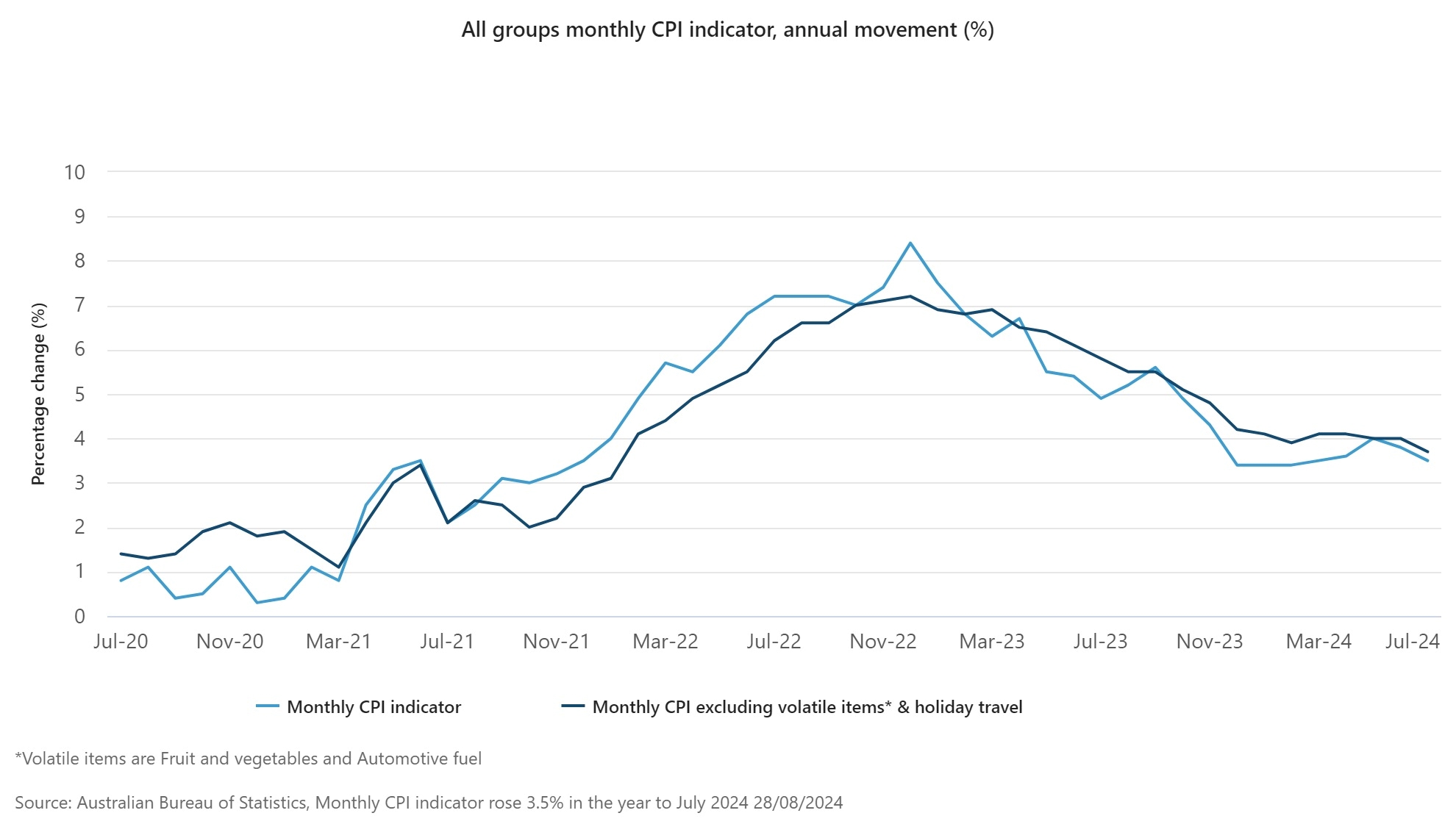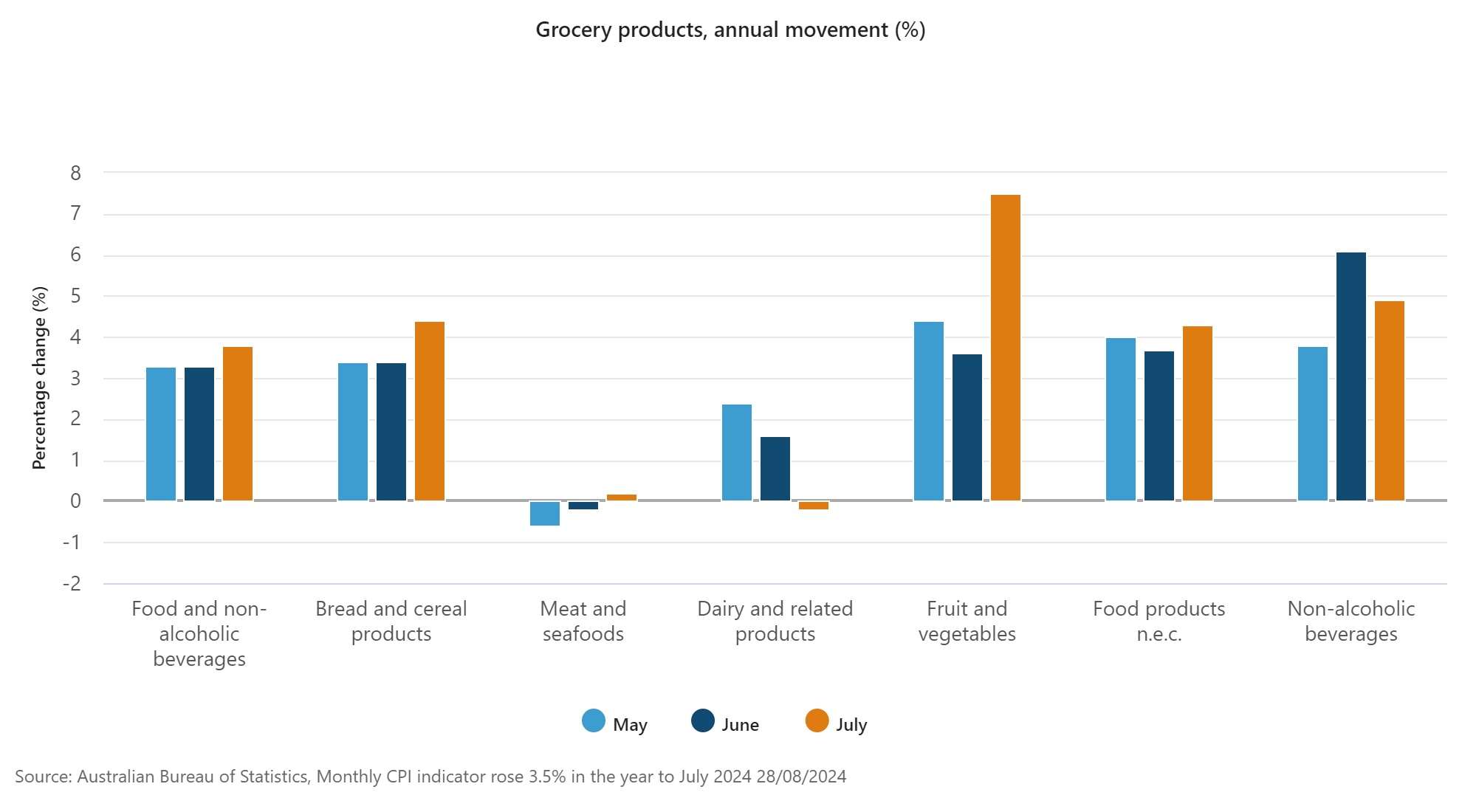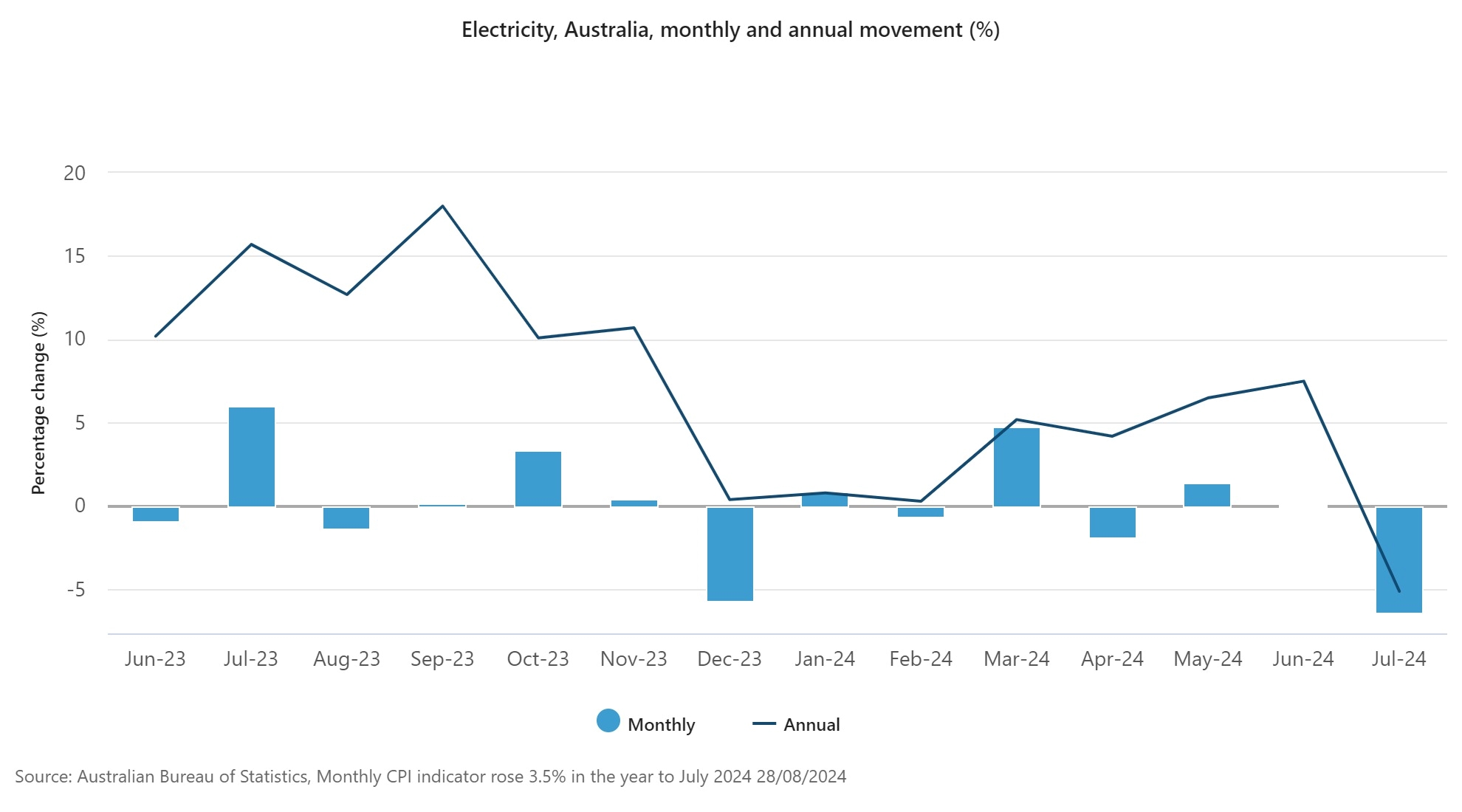Inflation eased in July, with the monthly Consumer Price Index (CPI) at 3.5 percent, down from 3.8 percent in June, despite the largest annual jump in fruit and vegetable prices since 2022.
The latest data from the Australian Bureau of Statistics (ABS) showed an annual increase of four percent in the cost of housing, with food and non-alcoholic beverages (+3.8 percent), alcohol and tobacco (+7.2 percent) and transport (+3.4 percent) also adding to inflation pressures.
ABS Acting Head of Prices Statistics Leigh Merrington said annual inflation for food and non-alcoholic beverages was 3.8 percent in July, up from 3.3 percent in June.
“The largest contributor to the annual rise in food prices was fruit and vegetables, which rose 7.5 percent in the 12 months to July, compared to 3.6 percent to June,” Mr Merrington said.
“Higher prices for strawberries, grapes, broccoli and cucumber drove fruit and vegetable prices to their largest annual rise since December 2022.”
He said inflation was often impacted by items with volatile price changes like in automotive fuel, fruit and vegetables, and holiday travel.
“It can be helpful to exclude these items from the headline CPI to see underlying inflation, which was 3.7 percent in July, down from four percent in June,” Mr Merrington said.
He said housing rose four per cent in the 12 months to July, down from 5.5 percent in June, with rents increasing 6.9 percent for the year to July, down from a rise of 7.1 percent in the 12 months to June, reflecting continued tightness in the rental market in capital cities.
“The annual rise in new dwelling prices has remained around five per cent since August 2023, with builders passing on higher costs for labour and materials.”
Mr Merrington said the lower increase in housing for the year to July was primarily due to falls in prices for electricity.
He said electricity prices fell 5.1 percent in the 12 months to July, down from a rise of 7.5 percent in June, with the introduction of new Commonwealth and State rebates driving the fall in July.
“The first instalments of the 2024-25 Commonwealth Energy Bill Relief Fund rebates began in Queensland and Western Australia from July 2024 with other States and Territories to follow from August. In addition, State-specific rebates were introduced in Western Australia, Queensland and Tasmania.
“Altogether these rebates led to a 6.4 percent fall in the month of July. Excluding the rebates, Electricity prices would have risen 0.9 percent in July,” Mr Merrington said.











